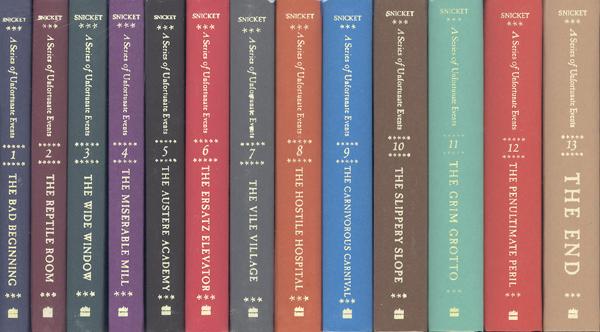A Series of Unfortunate Events Lives Up to Dreary Name
Feb 9, 2017
Another ‘Netflix Original’ disappointment, similar to Fuller House, emerges from the cesspools of book adaptations. Children and teenagers alike were undeniably looking forward to another ‘legendary’ Netflix adaptation. With its iconic series The Crown winning seven Golden Globes, expectations were high for this new show and ultimately, audiences were let down. Despite the interesting episode layout, Lemony Snicket’s A Series of Unfortunate Events adaptation is, at best, below the standards of common Netflix viewers and readers.
It may be the dry humor that induced a minor grimace, or perhaps the acting that couldn’t possibly hold a candle to the character depth included in the book series. Perhaps, both of these caused viewers to lose ten years off their life, reeled over in sorrow. Overall, general opinions have been induced with a negative connotation. Thus, similar to the books, this review is held up only by the misfortune of others.
After a fateful housefire, Violet, Sunny, and Claus Baudelaire are left utterly, incredibly alone. Without their doting parents, the Baudelaire orphans are thrust into the clutches of their “closest living relative,” Count Olaf: a starving actor who is predictably only after an enormous fortune left behind. Using their distinct skills to their advantage, the series is spent with the three children trying to escape his villainous clutches, with only utter misfortune left to accompany them.
First things first, the characters are incredibly shallow. Whether or not it’s because of their dry (dehydration-inducing) one-liners or single-faceted archetypes is up for speculation. However, both of these aspects combined creates a deadly combination. While in the book series, as per usual, there were many layers of character depth, making Netflix’s version all the more of a letdown.
Characters have distinct traits, however, they should not be solely defined by them. For example, Sunny Baudelaire generally has a mature aspect for someone her age and does not only bite things. Claus is very intelligent, but like every other twelve-year-old boy, he has feelings that are portrayed in the book (However, not in any adaptation).
With their parents’ untimely death, you’d think the director would portray the Baudelaires with a shred of grief. To conclude, not only to they misinterpret the three main characters, but the antagonist as well. Count Olaf, the supposedly fearful antagonist, is not someone who exists for comic relief- considering he spends most of the series actively attempting to harm the Baudelaires.
The narrator, Patrick Warburton, is depicted to be Lemony Snicket and is much more suited to voice Kronk in Emperor’s New Groove, instead of worsening his reputation in trying to fulfill his fantasies in a well known book series. Instead of his renowned humor, his performance is bland, and the humor is shabby enough to leave a rancid taste in my mouth. Instead of adding an intended lightweight factor to the show, it only induced something to worsen it.
Nonetheless, the plot remains entirely relevant to the story, which is more than other movie adaptations may claim. The costume design is entirely relevant to the period as well, and ultimately fits with illustrations included in the book series. These are the only things currently supporting towards the series; however, there is still much room for improvement.







Ben ◊ Feb 9, 2017 at 1:37 pm
wow good article! I like it!!!!!!!!!!!!!